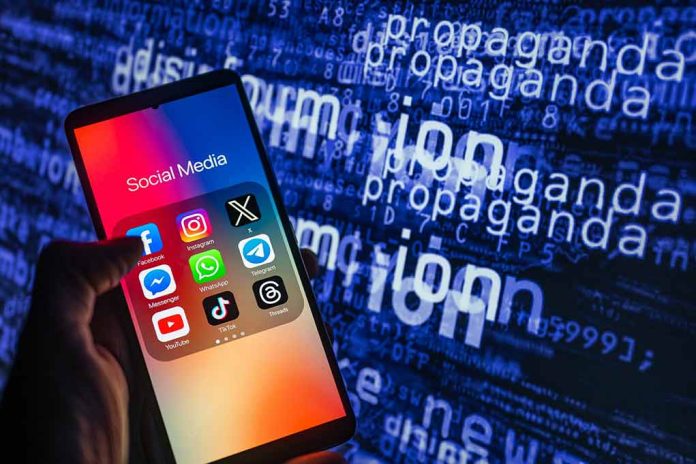
House officials have abruptly banned WhatsApp after a catastrophic “Signalgate” security breach exposed classified discussions, highlighting the perilous state of secure government communications.
Key Takeaways
- WhatsApp has been banned from House of Representatives members’ devices after being labeled “high risk” due to security concerns.
- The ban follows the embarrassing “Signalgate” incident, where journalist Jeffrey Goldberg was accidentally added to a classified Signal chat with top officials discussing Yemen.
- Five cabinet members are facing federal lawsuits for allegedly violating federal laws through their use of Signal for government communications.
- Meta strongly disputes the ban, claiming WhatsApp offers superior encryption compared to some approved alternatives.
- Signal remains approved despite its involvement in the security breach, alongside Microsoft Teams, Amazon Wickr, iMessage, and FaceTime.
WhatsApp Ban Triggers Security Debate
The House of Representatives has implemented a comprehensive ban on WhatsApp usage for legislative staff, citing critical security vulnerabilities. The Office of Cybersecurity declared the messaging platform “high risk” due to “lack of transparency in how it protects user data, absence of stored data encryption, and potential security risks involved with its use,” according to an official memo circulated to House staffers. This decisive action reflects growing concerns about data security in government communications amid increasing cyber threats targeted at sensitive government operations.
The ban specifically prohibits the Meta-owned application from being used on government-issued devices, forcing representatives and their staff to immediately transition to approved alternatives. This development creates a stark contrast with the Senate, which continues to permit WhatsApp usage, potentially complicating cross-chamber communications. The House Chief Administrative Officer has recommended several alternative platforms, including Microsoft Teams, Amazon Wickr, Signal, Apple’s iMessage, and FaceTime for official communications going forward.
Meta Disputes Security Risk Classification
Meta has responded forcefully to the ban, expressing strong disagreement with the House’s characterization of WhatsApp’s security profile. “We disagree with the House Chief Administrative Officer’s characterization in the strongest possible terms. We know members and their staff regularly use WhatsApp and we look forward to ensuring members of the House can join their Senate counterparts in doing so officially,” a Meta spokesperson stated. The company emphasized that WhatsApp offers superior protection compared to several approved alternatives on the CAO’s list.
“Messages on WhatsApp are end-to-end encrypted by default, meaning only the recipients and not even WhatsApp can see them. This is a higher level of security than most of the apps on the CAO’s approved list that do not offer that protection,” a Meta spokesperson said.
The timing of the ban raises questions, as WhatsApp has previously been targeted by sophisticated Israeli spyware affecting journalists and civil society members. Security experts note that while no messaging platform offers perfect security, the singling out of WhatsApp appears inconsistent with the continued approval of other platforms that have experienced similar or even more serious security incidents, suggesting potential political dimensions to the decision.
The “Signalgate” Scandal
The WhatsApp ban follows closely on the heels of the embarrassing “Signalgate” incident that rocked the administration. In that remarkable security breach, journalist Jeffrey Goldberg was accidentally included in a classified Signal chat containing high-ranking government officials discussing sensitive Yemen operations. The catastrophic error exposed confidential communications and triggered internal investigations into messaging platform usage across government departments. President Trump’s administration has since implemented stricter protocols for digital communications containing sensitive information.
“WhatsApp was deemed as high risk due to potential security risks involved with its use,” according to a memo.
The fallout from Signal gate extends beyond mere embarrassment, as five cabinet members involved in the compromised Signal chat now face federal lawsuits alleging violations of federal record-keeping laws. The plaintiffs contend that using ephemeral messaging platforms for government business circumvents transparency requirements mandated by legislation designed to preserve official communications. Ironically, despite being at the center of this controversy, Signal remains on the list of approved applications, raising questions about consistency in security standards.
Security vs. Transparency Balance
The WhatsApp ban and Signal controversy highlight the fundamental tension between security and transparency in government communications. The Pentagon has established guidelines permitting third-party messaging apps like Signal for sharing unclassified information while restricting their use for “non-public” unclassified content. This distinction creates a complex compliance environment for officials who must navigate both security needs and legal record-keeping requirements. Critics argue that banning specific platforms does little to address the underlying issue of ensuring proper documentation of government business.
Security experts point out that the real vulnerability often lies not with the technology but with human error and protocol violations. The Signal gate incident demonstrated how even the most secure platforms can be compromised through simple user mistakes. As government officials increasingly rely on digital communications, establishing clear, consistent policies across all branches and chambers of government becomes critical to preventing future breaches while maintaining the efficient operation of government functions.













